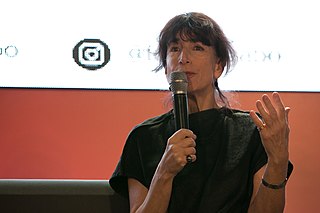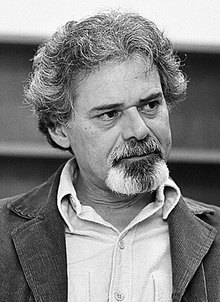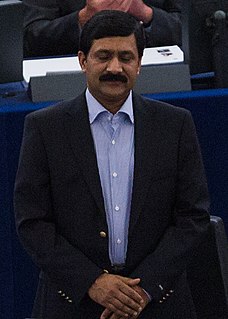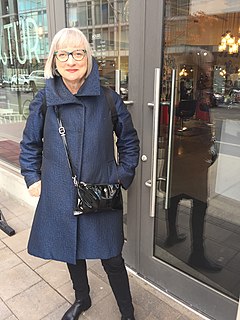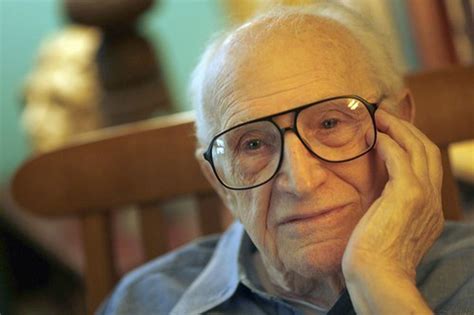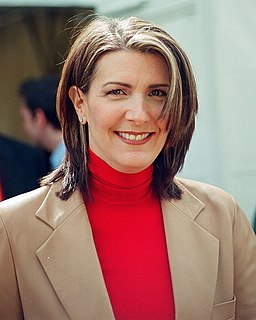A Quote by Tracy K. Smith
When I first became brave enough to tell people that I wrote poems, so many people would rave to me about Edna St. Vincent Millay's work. I was embarrassed not to have read her, and I think that put me off from reading her for a long time. So many of her poems are just impeccable.
Related Quotes
As for the differences between audio and the printed page, the sonic aspects of poetry are important to me. I read my poems aloud to myself as I'm composing them. And I enjoy reading to an audience. I think people get tone more easily when they hear a writer read her work. Some people have told me they hear more humor in my poems at a live reading than when they see them on the page. I think that may be a matter of pacing. On the other hand, I've listened to a lot of poetry readings and I know how much you can miss. If you stop to really register one line, you miss the next three or so.
One of my patients told me that when she tried to tell her story people often interrupted her to tell her that they once had something just like that happen to them. Subtly her pain became a story about themselves. Eventually she stopped talking to most people. It was just too lonely. We connect through listening. When we interrupt what someone is saying to let them know that we understand, we move the focus of attention to ourselves. When we listen, they know we care. Many people with cancer talk about the relief of having someone just listen.
The greatest feminists have also been the greatest lovers. I'm thinking not only of Mary Wollstonecraft and her daughter Mary Shelley, but of Anais Nin, Edna St. Vincent Millay, and of course Sappho. You cannot divide creative juices from human juices. And as long as juicy women are equated with bad women, we will err on the side of being bad.
Natalie Lyalin is writing some of the best poems in the world. There is an evil in her gorgeous poem-hearts. She must have sold her heart to the devil to write like this—so beautiful, so funny and so strange. Her images stack and stack down the page without spilling, each line such a bombshell you'll start reading backward to the first line. These poems are like babies—they will pop out of trees.
Harriet Levin [is] a shining poet in her generation.... The dynamics of her language and her vigorous voice distinguish all her poems. Levin's fearless willingness to tackle any subject combines with her subtle intelligence to produce a rare reading experience, the moving, psychologically sophisticated and intriguing work of a poet with both guts and craft
When Emily Dickinson's poems were published in the 1890s, they were a best-seller; the first book of her poems went through eleven editions of a print run of about 400. So the first print run out of Boston for a first book of poems was 400 for a country that had fifty million people in it. Now a first print run for a first book is maybe 2,000? So that's a five-time increase in the expectation of readership. Probably the audience is almost exactly the same size as it was in 1900, if you just took that one example.
It's true, there aren't many explicit references to Canada in my book. And not many explicit references to the U.S., either. I try to fill my poems with enough real, observed detail that the poems create a believable world - but I don't write poems for the sake of telling my own story. My life is not important or interesting enough to warrant that kind of documentary. Instead I try to use my experience as a way of understanding situations that are common to many people. I want readers to project their own lives onto my poems.
She wrote poetry constantly; that was her "work". She was a slow bleeder and she slaved over it for long, exhausting hours, and many a middle of a night I could hear her creaking around the dead house with a pen in one hand, a clipboard and a flashlight in the other, refining her poems, jotting down the lines of a conceit. Writing never came easy for her; it gave her calluses. She never courted the muses, she wrestled them, mauled them all over the house and came up, after weeks of peripatetic labor, with a slim Spencerian sonnet, fourteen lines of imagistic jabberwocky.
Sally Barris has a voice like sparkling crystal. You could have knocked me over with a feather the first time I heard her. Her writing is from a deep, yet innocent, place and her point of view is just a bit off center. I am excited for her, she is standing at the beginning of her journey in this town, with all of it ahead of her. It reminds me of the first time I heard Beth Nielson-Chapman or Nanci Griffith. It's going to be fun to watch.
I get ticked off a lot because I don't think she [Faith Hill] gets the respect she deserves. I tell her all the time, "If you were 300 pounds and dog ugly, people would think you were the greatest singer in the world." They have the tendency to look at her and never really listen to her. The reason it works is she's a fantastic artist. It's almost embarrassing for me to sing with her sometimes.

